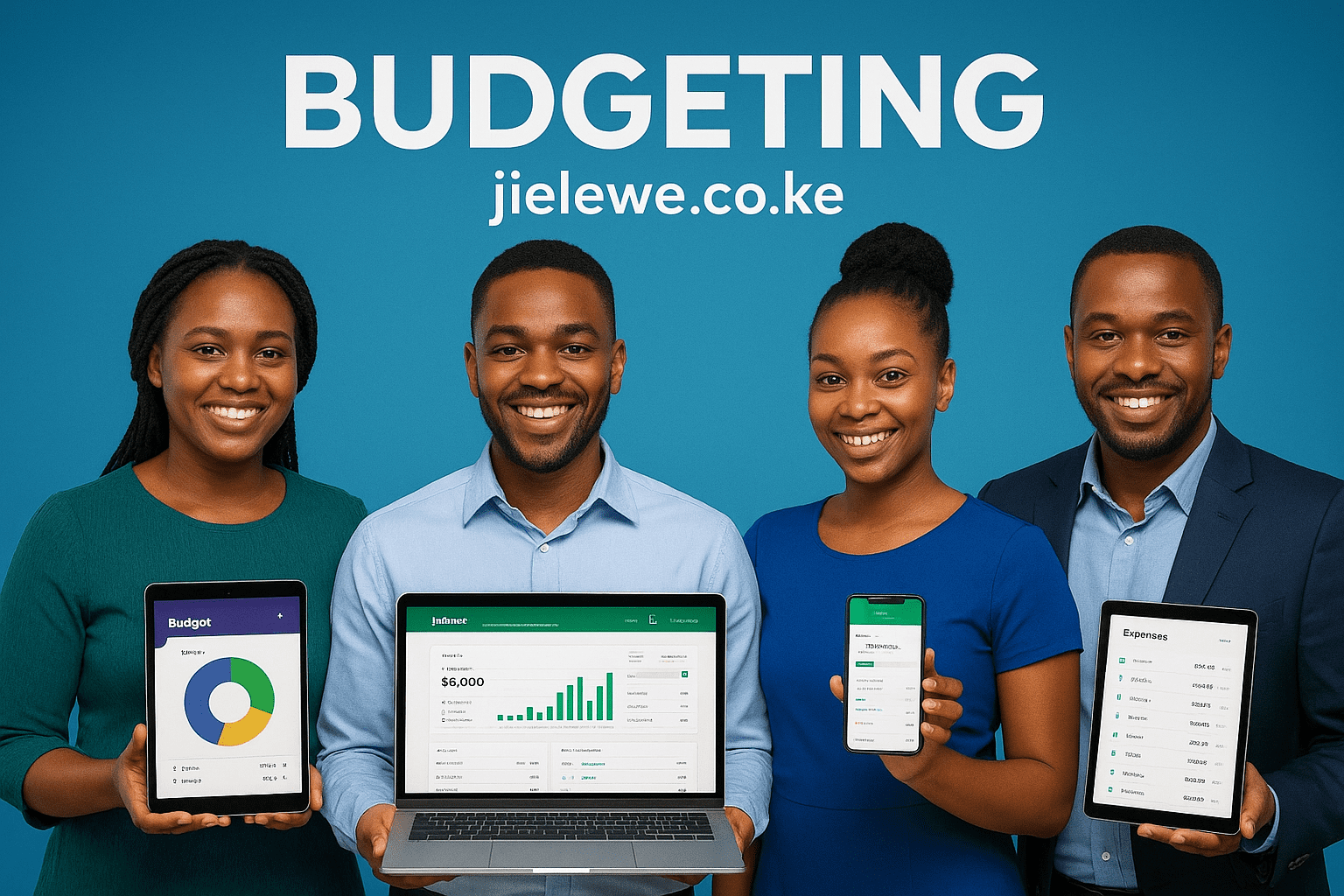Introduction
Have you ever reached the middle of the month and wondered, “Where did all my money go?” You’re not alone. Many Kenyans struggle with managing daily expenses, especially with rising costs of food, transport, and utilities. Between M-Pesa charges, impulse spending, and unexpected bills, money tends to “disappear.”
The good news is that with the right tools, you can track your spending, cut unnecessary costs, and start saving. That’s where Jielewe comes in — your personal finance tracker built for the Kenyan lifestyle.
Why Expense Tracking Matters in Kenya
Life in Kenya today is expensive, and without a proper system, it’s easy to lose control of your finances. Here’s why keeping tabs on your money is crucial:
- Rising cost of living: Food prices, rent, and school fees are constantly increasing.
- Transaction fees: Daily M-Pesa and bank charges eat into your income.
- Loans and chamas: Monthly deductions and group contributions add up quickly.
- Lifestyle expenses: Eating out, entertainment, and shopping can silently drain your pockets.
Tracking your expenses helps you see the full picture — and identify where you can cut back.
Common Money Leaks for Kenyans
Most people don’t realize where their money goes until they track it. Here are some of the biggest money leaks in Kenya:
- M-Pesa withdrawals and charges – Small fees add up to thousands every year.
- Unplanned spending – Impulse purchases at supermarkets or nyama choma joints.
- Duplicate subscriptions – Paying for multiple streaming services or unused internet bundles.
- Transport costs – Matatus, boda bodas, or fuel, especially without a set budget.
- “Soft life” temptations – Outings, fashion, and entertainment that exceed income levels.
How Jielewe Helps You Take Control
Jielewe isn’t just another app — it’s designed for the Kenyan lifestyle. Here’s how it works:
- Easy expense logging – Record daily spending and income in seconds.
- Smart categorization – Organize expenses into categories like rent, food, transport, bills, and leisure.
- Visual insights – Charts and graphs show where your money is going at a glance.
- Goal setting – Save for big plans like school fees, a car, or land.
- M-Pesa awareness – Track how much you actually lose to transaction fees.
With Jielewe, you don’t just record — you understand your money.
Practical Example: Wanjiku’s Story
Wanjiku earns KSh 50,000 per month, but by the 20th, her money is finished. After using Jielewe, she realized:
- KSh 8,000 went to eating out.
- KSh 5,000 disappeared into M-Pesa charges and withdrawals.
- KSh 3,000 was spent on subscriptions she barely used.
By identifying these leaks, Wanjiku cut unnecessary costs, saved KSh 10,000 a month, and started contributing to her chama savings consistently.
Money-Saving Tips for Kenyans
Here are practical ways to save more every month:
- Use internet bundles instead of airtime.
- Buy foodstuff in bulk from wholesalers or local markets.
- Limit M-Pesa withdrawals — transfer once and use cash wisely.
- Track your transport routes and consider carpooling.
- Set a monthly “soft life” budget and stick to it.
Why Choose Jielewe?
Unlike foreign apps, Jielewe is built for Kenyans:
✅ Designed with M-Pesa in mind
✅ Simple and mobile-friendly
✅ Helps you set realistic savings goals
✅ Perfect for individuals, families, and small businesses
When you use Jielewe, you don’t just save money — you gain financial freedom.
Conclusion
If you’ve ever felt like your salary disappears too fast, it’s time to take control. Tracking your expenses with Jielewe shows you where your money really goes and helps you make smarter decisions.
👉 Sign up today at jielewe.co.ke and start your journey to financial freedom.
Jielewe — Know your money. Own your future.
FAQ Section – Expense Tracking in Kenya
You can use apps like Jielewe to record expenses and get insights into where your money is going. Alternatively, keep a daily notebook, but apps are more effective and easier to analyze.
Because M-Pesa charges and withdrawals can silently drain thousands of shillings each year. Tracking helps you see how much you lose in fees and avoid unnecessary transactions.
Jielewe is tailored for the Kenyan lifestyle, with M-Pesa awareness, local categories, and savings goals.
Financial experts recommend saving at least 10–20% of your income, but start small and increase as you cut unnecessary spending.
Withdraw larger amounts at once, pay bills via till numbers (free), and use bank-to-M-Pesa integrations instead of multiple small transactions.
It’s a method where:
50% goes to needs (rent, bills, food)
30% to wants (entertainment, shopping)
20% to savings or debt repayment
Yes. Jielewe can track both personal and business expenses, making it ideal for shop owners, boda boda riders, or freelancers in Kenya.
Set a monthly “soft life” budget, use Jielewe to track every purchase, and avoid carrying excess M-Pesa balance that tempts you to spend.
Use a goal tracker like Jielewe, join a chama, or open a savings account with locked withdrawals.
Begin with small amounts (even KSh 100 daily), cut unnecessary costs (like excess airtime), and track every shilling with Jielewe to see where you can adjust.
